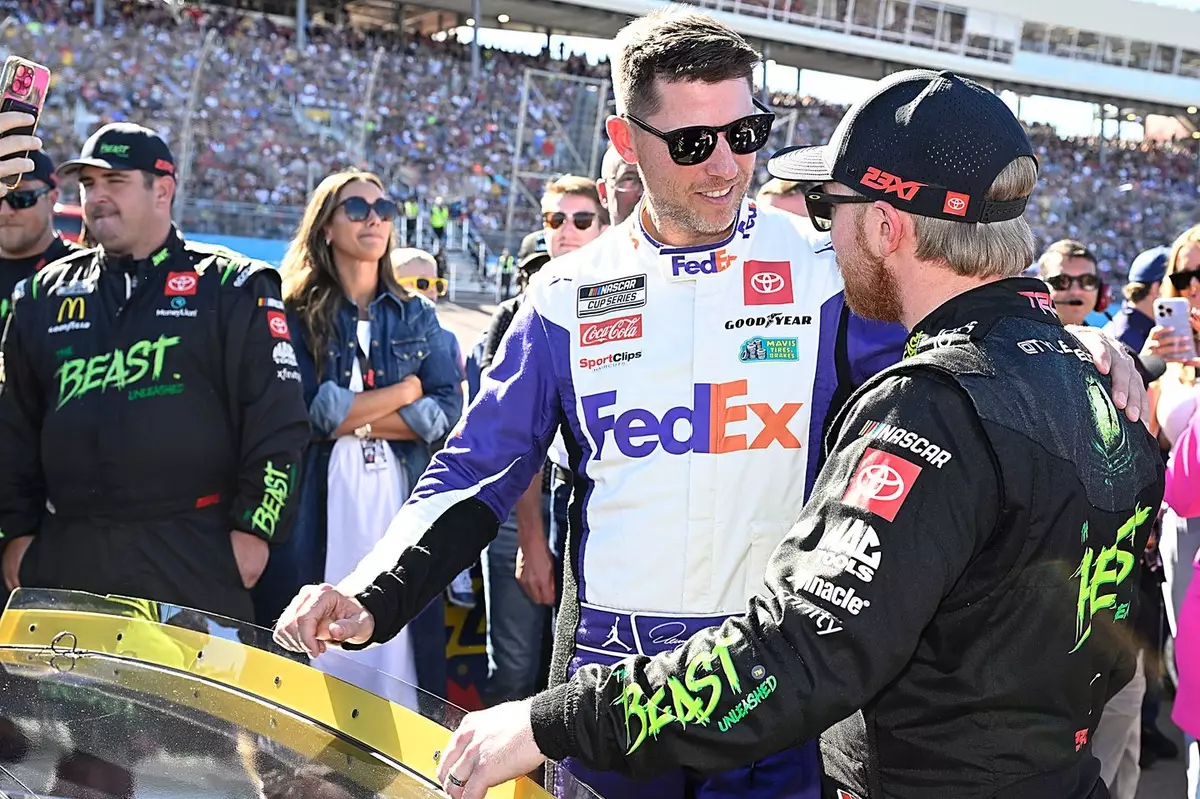In a significant development within the world of NASCAR, 23XI Racing and Front Row Motorsports (FRM) have secured a preliminary injunction that allows them to maintain their charters for the upcoming 2025 season amid a contentious antitrust lawsuit directed against NASCAR and the powerful France family. This ruling, while temporary, has crucial implications not only for the involved teams but also for the NASCAR landscape as a whole, particularly with reference to the competitive dynamics in premier stock car racing.
The crux of the lawsuit arises from disputed sections of the 2025 Charter Agreement, particularly a release clause that purportedly precludes teams from pursuing antitrust claims against NASCAR post-signing. On the surface, this might seem like a boilerplate legal protection, but beneath it lies a deeper narrative about power dynamics and regulatory oversight in professional sports.
For teams to obtain such a preliminary injunction, they had to convincingly demonstrate several key factors: a likely chance of succeeding on the merits of the case, the risk of irreparable harm if not granted relief, an equitable balance in their favor, and the public interest benefiting from their request. Initially, both 23XI and FRM encountered a setback on November 8, when their first motion was denied largely due to a failure to convincingly present claims of irreparable harm.
However, in a strategic pivot, the teams decided to pursue another approach. They dropped their original appeal and re-filed with a request that allowed them to compete under the 2025 Charter Agreement, excluding the contentious release clause. This tactical change shows a keen understanding of legal nuances and enables them to shift the focus of the court to the broader implications of their claims.
Presided over by Judge Kenneth D. Bell — a change from Judge Frank D. Whitney, who initially dismissed their request for relief — the ruling has allowed both teams to keep their charters pending the lawsuit’s resolution. Given that both organizations are looking to expand their operations, this decision breathes life into their immediate plans. The court’s ruling permits 23XI to finalize a deal for a third charter from the recently shuttered Stewart-Haas Racing, signaling an important opportunity for both teams amidst ongoing uncertainty.
Interestingly, 23XI has already earmarked Riley Herbst for their new addition, while rumors swirl around FRM’s pursuit of Zane Smith for a similar role. These movements highlight how the legal decision has catalyzed immediate organizational strategies, showcasing the intertwined nature of legal outcomes and business decisions within competitive sports.
One of the standout elements of the court’s ruling was its acknowledgment of NASCAR’s “monopoly/monopsony power in the relevant market.” This is a critical assertion, as it lends considerable weight to the teams’ allegations regarding NASCAR’s monopolistic practices. The claim that NASCAR maintains a 100% market share over premier stock car racing illustrates the underlying concerns about competitive fairness and the potential suppression of emergent teams in the marketplace.
This assertion’s legal gravity not only elevates the legitimacy of the teams’ concerns but also frames a narrative where fans, stakeholders, and governing bodies should assess the competitive balance within NASCAR. Such monopoly claims are often difficult to establish, but this particular ruling suggests a judicial recognition of systemic issues that could warrant further scrutiny.
A critical aspect of this case is the immediate risk faced by drivers associated with 23XI and FRM. For instance, Tyler Reddick’s potential contract voiding presents a stark reality of how quickly outcomes can shift in a volatile legal environment. The uncertainty plaguing other drivers under the teams’ umbrellas further underscores the broader implications of the ruling, as it creates an atmosphere of instability within the ranks.
With NASCAR possessing the option to appeal the decision, it remains to be seen how the situation will evolve as the 2025 season approaches. However, the current ruling opens up substantial dialogue about competitive integrity, corporate governance, and athlete rights—issues that resonate well beyond the racetrack and into the heart of sports regulation.
In sum, the preliminary injunction obtained by 23XI Racing and Front Row Motorsports represents a crucial foothold amidst a complex and pivotal legal struggle. As this case unfolds, the ultimate resolution holds the potential to reshape not only NASCAR’s organizational structure but also the fundamental principles of competition and fairness within motorsport. The implications are vast, and all eyes will remain on how this ruling influences not only the 2025 season but the broader landscape of professional racing in the United States.

